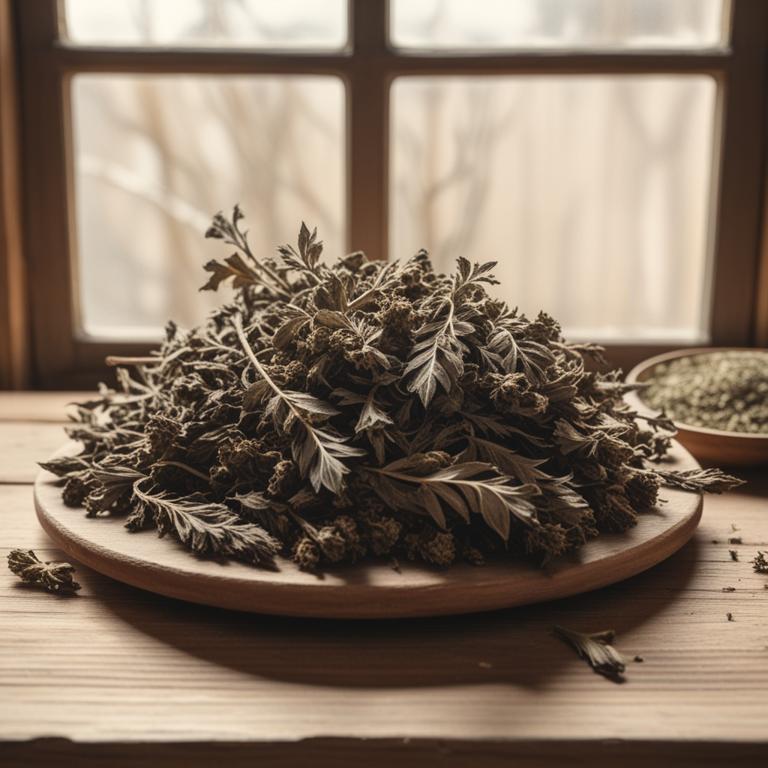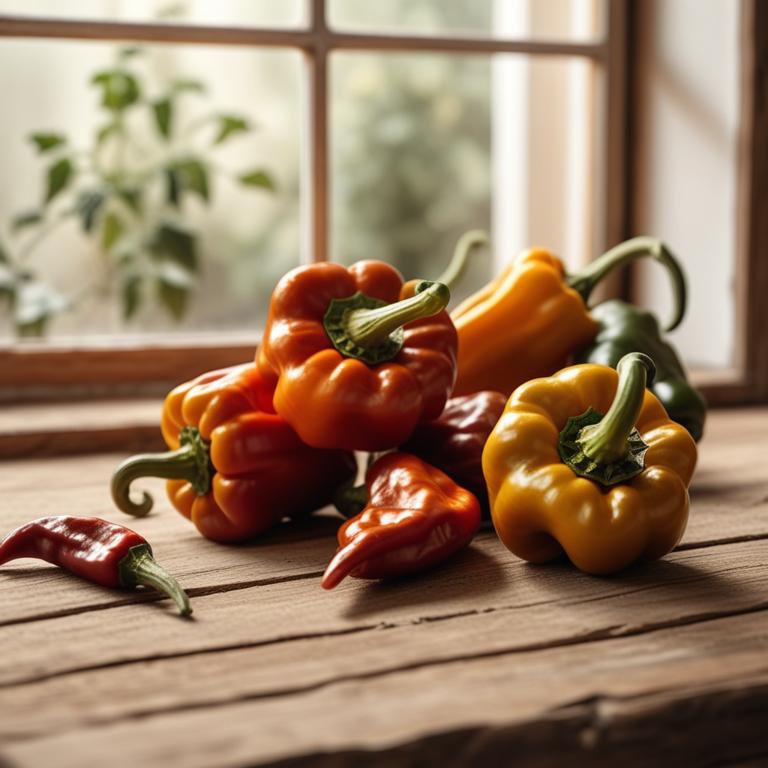Updated: Dec 1, 2024
Difficulty Chewing: Understanding the Causes and Medicinal Herbs

Difficulty chewing, also known as dysphagia, is a condition that makes it hard to swallow food.
It can be painful and frustrating, and it can affect your daily life in many ways. You might struggle to eat your favorite foods, and even simple tasks like eating a sandwich or a salad can become a challenge. Difficulty chewing can be caused by a variety of factors, such as gum disease, dental problems, or conditions like Parkinson's disease or multiple sclerosis. In some cases, it can also be a side effect of surgery or radiation therapy. Fortunately, there are some herbal remedies that may help alleviate difficulty chewing.
Turmeric, for example, has anti-inflammatory properties that can help reduce pain and swelling in the mouth and throat. Ginger is another herb that has been shown to have anti-inflammatory effects, and it can also help soothe digestive issues that may be contributing to difficulty chewing. To use these herbs, you can try drinking teas made from fresh ginger or turmeric roots. You can also take supplements in capsule or powder form. Some people also find relief by applying a topical paste made from ginger or turmeric to the affected area. It's worth noting that while herbal remedies may be helpful, they should not be used as a replacement for medical treatment.
If you're experiencing difficulty chewing, it's always best to consult with a healthcare professional to rule out any underlying conditions that may need attention.
Table of Contents
- What are the possible causes of difficulty chewing?
- What benefits do herbs offer for individuals who have difficulty chewing?
- What are the fundamental medicinal herbs for mitigating difficulty chewing?
- What are the primary herbal preparations used to alleviate difficulty chewing?
- Which herbs are you advised to steer clear of if you experience difficulty chewing?
- FAQ
What are the possible causes of difficulty chewing?
The main causes of difficulty chewing are linked to a combination of dental and jaw problems.
Temporomandibular Disorder, often referred to as TMD, is a common cause of difficulty chewing. This condition occurs when the joint that connects the jawbone to the skull becomes inflamed, causing pain and stiffness in the jaw. As a result, people with TMD may find it hard to open their mouth wide, leading to difficulties when eating or chewing food. Dental decay is another significant cause of difficulty chewing. When teeth become decayed, it can lead to the loss of tooth structure, making it challenging to bite and chew food properly. In severe cases, decayed teeth may need to be extracted, further complicating the chewing process.
Gum disease, also known as periodontal disease, is a bacterial infection that affects the gums and bone supporting the teeth. As gum disease progresses, it can cause the gums to pull away from the teeth, creating pockets that can trap food particles. This can make it difficult to chew and swallow food, as the teeth may be unable to properly break it down. Mast cell activation is a less common cause of difficulty chewing, but it can be a significant issue for those affected. Mast cells are a type of immune cell that release histamine, a chemical that can cause blood vessels to dilate and lead to inflammation. When mast cells are activated, it can cause a range of symptoms, including jaw pain and difficulty chewing.
This condition is often associated with other immune system disorders, such as mast cell activation syndrome.
What benefits do herbs offer for individuals who have difficulty chewing?
Using herbs to help with difficulty chewing can be a great solution for people who struggle with this issue.
One of the main benefits is that these herbs can help reduce inflammation in the mouth, which can make it harder to chew. By reducing swelling and discomfort, people can eat their food more easily and with less pain.
Some herbs can also help to relax the muscles in the mouth and jaw, making it easier to chew and swallow. Additionally, these herbs may have antibacterial properties, which can help prevent infections in the mouth and gums, further reducing discomfort and difficulty chewing.
By incorporating these herbs into their diet, people can start to feel more comfortable eating and can enjoy their favorite foods again.
What are the fundamental medicinal herbs for mitigating difficulty chewing?

Herbs can be super helpful when you're having trouble chewing.
Let's talk about some of the best ones. Zingiber officinale, also known as ginger, is great because it reduces inflammation in the mouth and throat, making it easier to swallow food. It also has a natural anti-inflammatory effect that can help ease jaw pain. Curcuma longa, or turmeric, has a similar effect to ginger. It contains a compound called curcumin, which fights inflammation and can help calm down any irritation in the mouth or throat. Turmeric is also known to reduce pain and swelling, making it easier to eat.
Licorice root, or Glycyrrhiza glabra, has been used for centuries to soothe sore throats and mouths. It's got natural anti-inflammatory properties that can help reduce swelling and ease pain. This makes it perfect for people who have trouble chewing due to mouth or throat issues. Cinnamomum verum, or Ceylon cinnamon, has a unique property that helps reduce inflammation and pain. It's also got antibacterial properties that can help prevent infections in the mouth and throat, which can make eating even more difficult. Finally, Zanthoxylum bungeanum, or Chinese prickly ash, has been used in traditional Chinese medicine to ease pain and reduce inflammation.
It's got a natural numbing effect that can help reduce pain in the mouth and throat, making it easier to chew and swallow food.
What are the primary herbal preparations used to alleviate difficulty chewing?
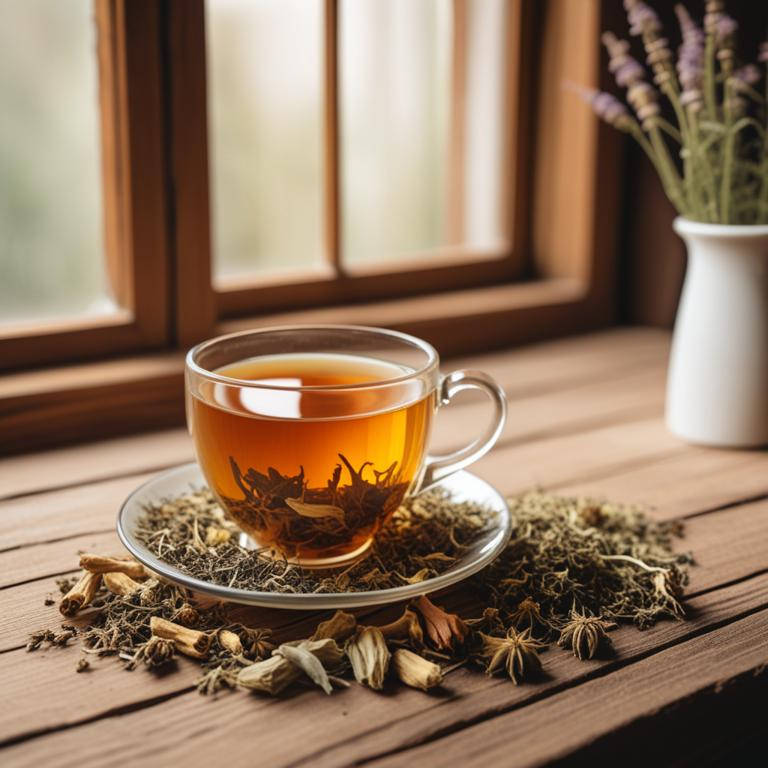
If you're having trouble chewing, herbal preparations can be a big help.
A decoction is a liquid preparation made by steeping herbs in hot water for a longer time. This method is good because it helps release the herbs' active ingredients, which can be beneficial for digestive issues like difficulty chewing. An infusion is similar to a decoction, but it's made by steeping herbs in hot water for a shorter time. This method is good for delicate herbs that might get damaged by longer steeping times.
A salve is a topical preparation made from herbs and oils. It's applied directly to the affected area, like the mouth, to soothe and calm any discomfort or pain. Tea is another liquid preparation made by steeping herbs in hot water. Like infusions, it's a great way to release the herbs' active ingredients and can be very soothing for digestive issues. Capsules are solid preparations made from dried and powdered herbs.
They're easy to swallow and can be a convenient way to get the benefits of herbs when you're having trouble chewing.
Additional Resources:
Which herbs are you advised to steer clear of if you experience difficulty chewing?
If you have trouble chewing, it's best to use these herbs with caution.
Rosmarinus officinalis, also known as rosemary, is a common ingredient in teas and soups. However, its seeds and leaves can be hard and fibrous, making them difficult to chew and swallow. Thymus serpyllum, or wild thyme, has small, fragrant flowers that are also tough and fibrous. This can be a problem if you're having trouble chewing.
Foeniculum vulgare, or fennel, has a similar texture to thyme, with hard and fibrous stalks and seeds. Angelica archangelica, or angelica, has thick, celery-like stalks that can be hard to chew. Cuminum cyminum, or cumin, has small, hard seeds that can be difficult to swallow. When using these herbs, it's a good idea to make teas or soups instead of trying to eat them raw.
This way, you can still get the benefits of the herbs without struggling with the texture.
FAQ
Are there any specific herbs that can prevent difficulty chewing?
Some herbs, like slippery elm and licorice root, may help soothe mouth and throat irritation, making it easier to chew.
Slippery elm has a protective coating that can shield mucous membranes, while licorice root has anti-inflammatory properties that can reduce swelling.
This can make eating and chewing more comfortable.
Is it safe to use herbal remedies for difficulty chewing during pregnancy?
It's generally a good idea to be cautious when using herbal remedies during pregnancy.
Some herbs can affect the baby's development or cause problems during delivery. If you're having trouble chewing, try eating soft foods or taking small bites.
If the problem persists, consider talking to a trusted source about your options.
Are there any herbs that can reduce the frequency of difficulty chewing?
Turmeric contains curcumin, which may help reduce inflammation and ease jaw pain.
Ginger has anti-inflammatory properties that can calm the muscles in the jaw, making it easier to chew.
These herbs may help alleviate the discomfort and pain associated with difficulty chewing.
Can i combine different herbal remedies for difficulty chewing?
You can combine different herbal remedies to help with difficulty chewing, but use them in moderation.
For example, you could try mixing slippery elm with marshmallow root to soothe and protect your mouth and throat. You could also add aloe vera to help calm and heal any irritation.
Just be sure to start with small amounts and adjust as needed.
Related Articles
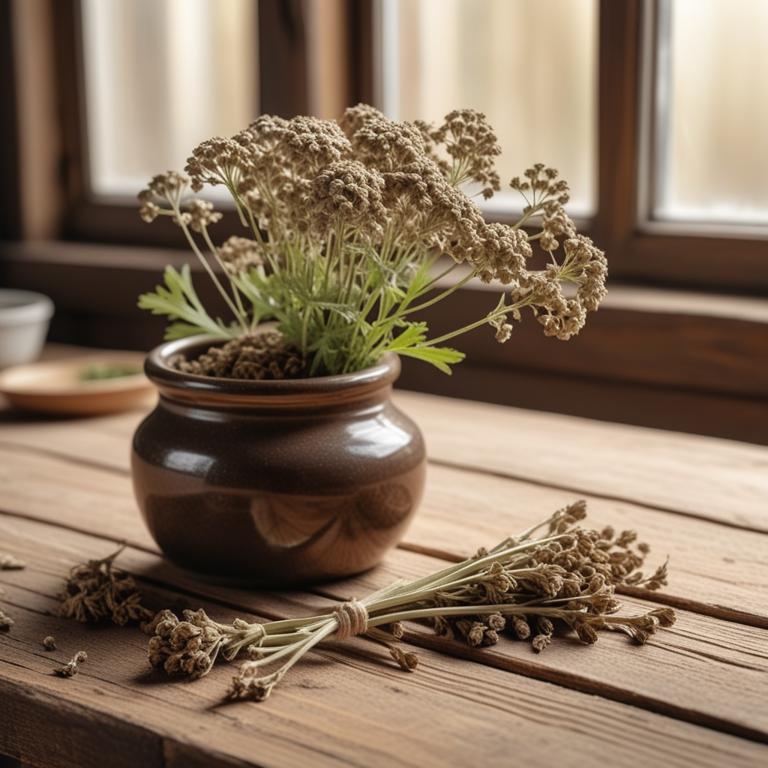
Understanding and Treating Leg Cramps with Medicinal Herbs
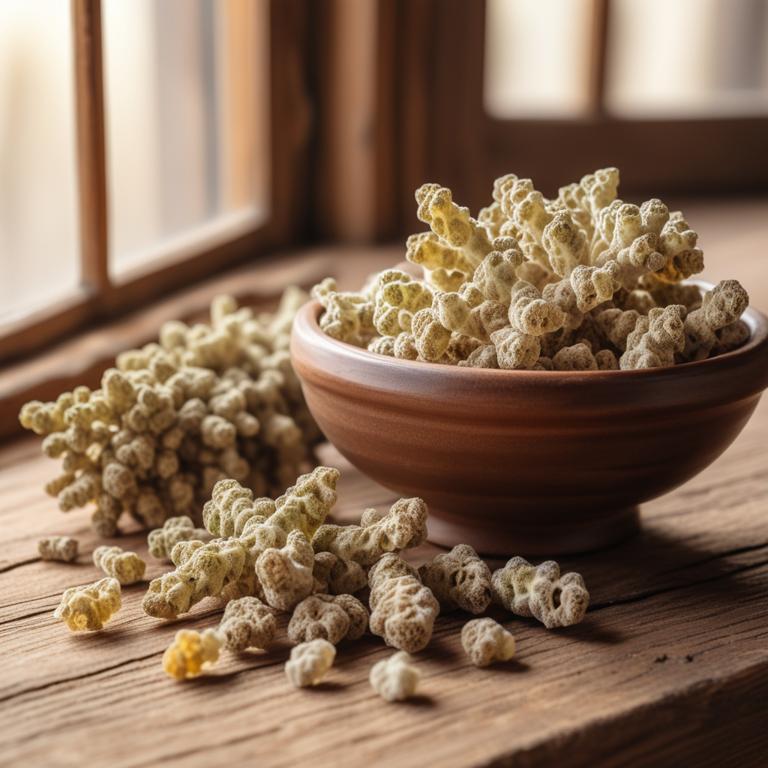
The Osteoarthritis Guide: Causes, Medicinal Herbs, and Herbal Preparations for a Healthier You
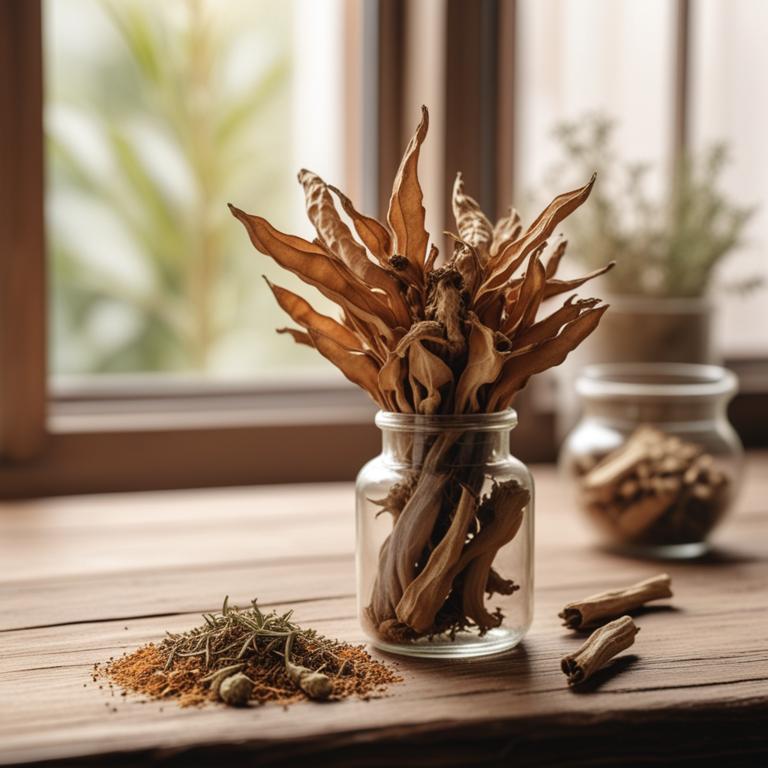
Understanding Lower Back Pain: Causes, Medicinal Herbs, and Herbal Preparations
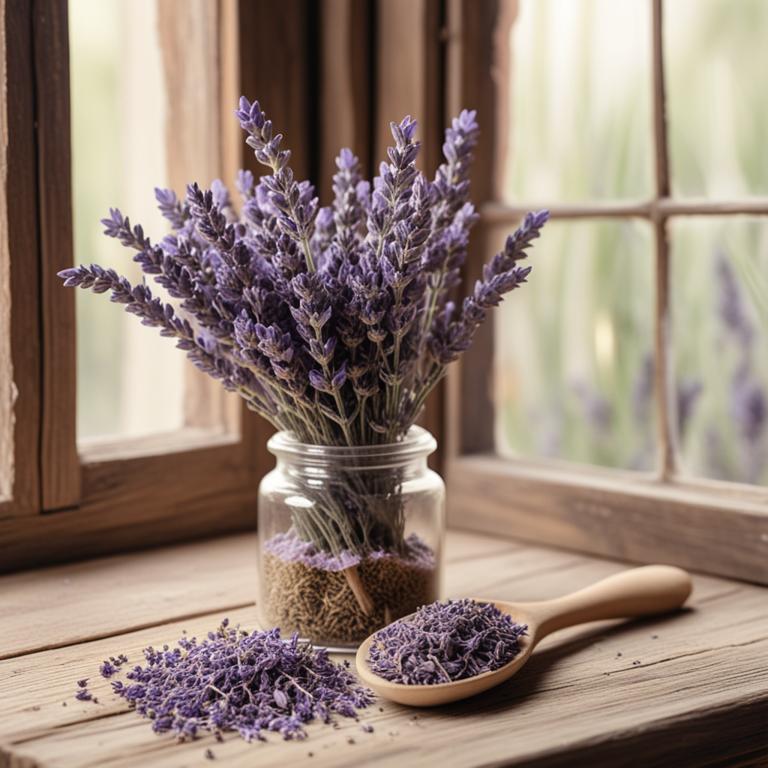
Jaw Clenching and Bruxism: Causes, Medicinal Herbs, and Herbal Preparations
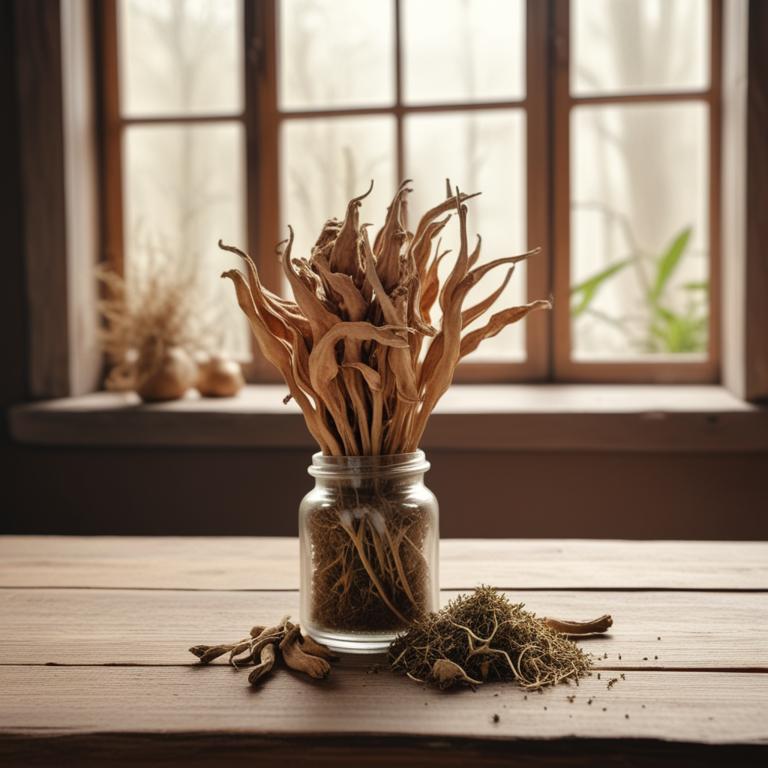
Tendinitis Relief: Exploring Medicinal Herbs and Their Preparations





